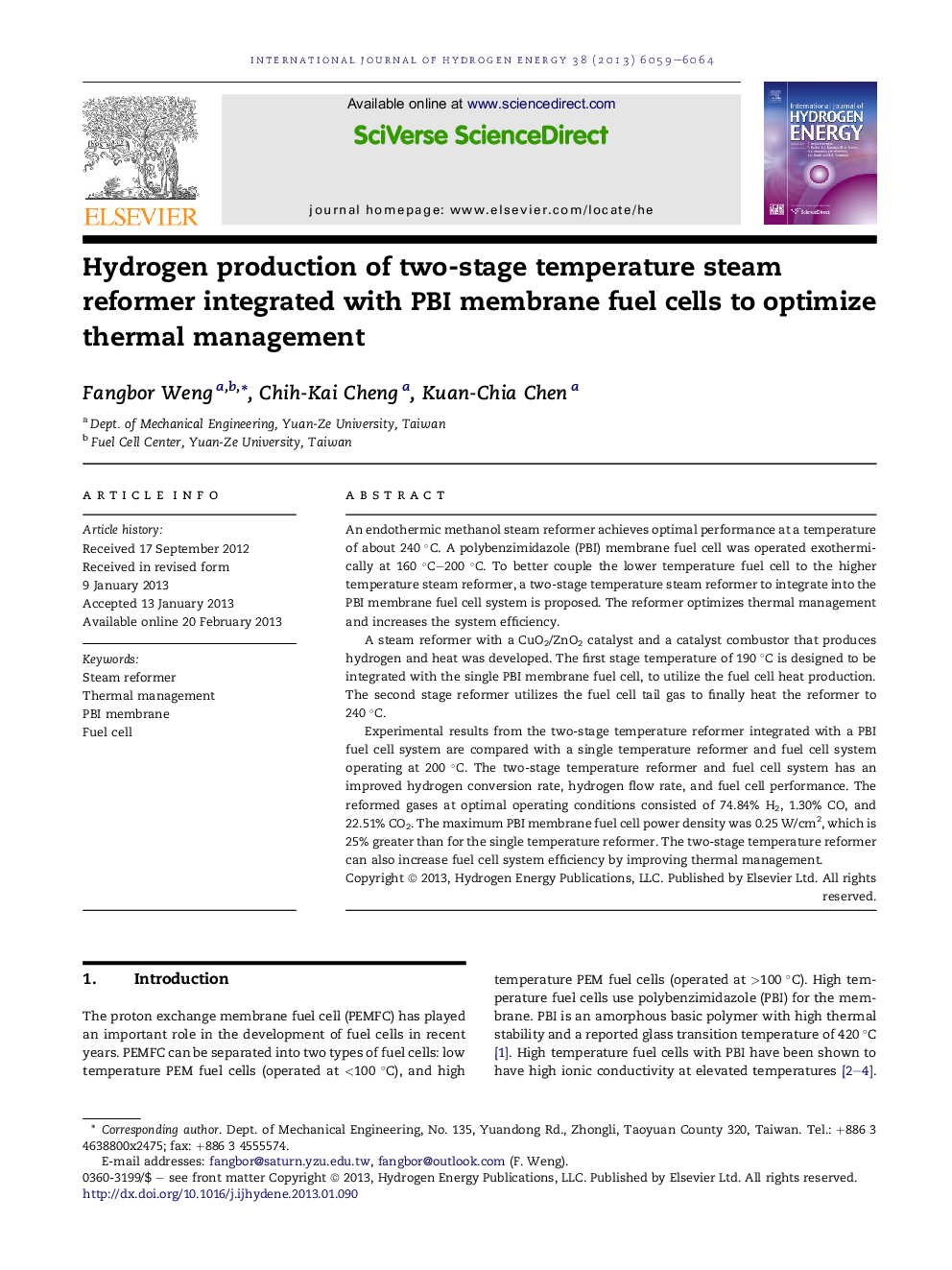| Article ID | Journal | Published Year | Pages | File Type |
|---|---|---|---|---|
| 1281721 | International Journal of Hydrogen Energy | 2013 | 6 Pages |
An endothermic methanol steam reformer achieves optimal performance at a temperature of about 240 °C. A polybenzimidazole (PBI) membrane fuel cell was operated exothermically at 160 °C–200 °C. To better couple the lower temperature fuel cell to the higher temperature steam reformer, a two-stage temperature steam reformer to integrate into the PBI membrane fuel cell system is proposed. The reformer optimizes thermal management and increases the system efficiency.A steam reformer with a CuO2/ZnO2 catalyst and a catalyst combustor that produces hydrogen and heat was developed. The first stage temperature of 190 °C is designed to be integrated with the single PBI membrane fuel cell, to utilize the fuel cell heat production. The second stage reformer utilizes the fuel cell tail gas to finally heat the reformer to 240 °C.Experimental results from the two-stage temperature reformer integrated with a PBI fuel cell system are compared with a single temperature reformer and fuel cell system operating at 200 °C. The two-stage temperature reformer and fuel cell system has an improved hydrogen conversion rate, hydrogen flow rate, and fuel cell performance. The reformed gases at optimal operating conditions consisted of 74.84% H2, 1.30% CO, and 22.51% CO2. The maximum PBI membrane fuel cell power density was 0.25 W/cm2, which is 25% greater than for the single temperature reformer. The two-stage temperature reformer can also increase fuel cell system efficiency by improving thermal management.
► The reformer were used to optimize the hydrogen concentration and production flow rate. ► The two-stage reformer was designed to improve the stability and concentration of outlet gas. ► Fuel cell performance in pure hydrogen and two-step temperature reformer were 0.344 and 0.25 W/cm2. ► Two-step reformer makes reforming more efficient and improves hydrogen production.
